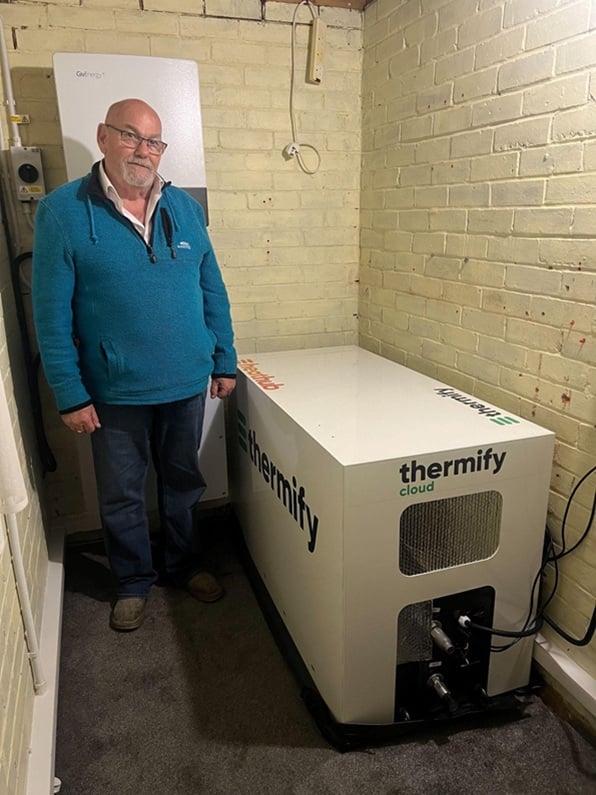Reusing heat from servers has gained momentum recent years, but UK Power Networks (UKPN) is taking an unusual approach: installing mini datacenters powered by Raspberry Pi hardware in customers homes to provide heating for families struggling with energy costs.
UKPN, which manages the "last mile" of cables and substations delivering electricity from the National Grid to customers in the South East of England, is piloting the project as part of its SHIELD (Smart Heat and Intelligent Energy in Low-income Districts) program.
This will equip participating households with solar and battery systems, while one-third will also receive the "HeatHub" system - a compact datacenter roughly the size of a large heat pump that replaces traditional gas boilers.
This phase of the project will collect data to support the scaling up of SHIELD, with UKPN aiming to deploy 100,000 systems a year by 2030.
HeatHub is designed and operated by a firm called Thermify, which uses the unit to process containerized workloads for business customers of its distributed cloud service.
Terry Bridges, tenant at Eastlight Community Homes in the East of England, next to the HeatHub that harvests waste heat from server processing
Thermify told us that the processing power inside each HeatHub is provided by a cluster of 500 Raspberry Pi Compute Modules, either the CM4 or CM5. The whole kit is submerged in oil, and the heat is transferred to the domestic central heating and hot water systems, making it a "plug and play" replacement for a gas boiler. The unit in its video promo is much smaller than the one in the image for this article.
A dedicated network connection at each site in being installed, so householders don't have to worry about HeatHub eating all their broadband bandwidth, the company told us.
- Datacenter biz wants to turn heat and carbon waste into biomass for sale
- Google's €1B Finnish datacenter expansion to heat the local community
- Plans to heat districts with datacenters may prove too hot to handle
- Deep Green gets £200M from power supplier to scale waste heat reuse
UKPN is working with Power Circle Projects, housing association Eastlight Community Homes, and Essex Community Energy on a rollout of the SHIELD low-carbon technologies, as well as a new social heating tariff across select housing estates in the East and South East of England.
Low-income tenants will pay a monthly standing charge of £5.60 ($7.52), according to UKPN, and SHIELD is estimated help participating tenants reduce their energy bills by 20 to 40 percent.
Charlie Edgar, overseeing the SHIELD work on behalf of Eastlight Community Homes, said in a statement: "The pilot results for this innovative solution are very encouraging and we're excited to see it being trialed in hundreds more homes.
"We can see the potential to provide reliable heating at a predictable low cost, empowering families to maintain a comfortable living environment without the stress of rising energy bills."
This isn't the first project of this kind. Heata, which started as a project within UK energy company British Gas, fits servers onto domestic hot water tanks to cut energy bills for homeowners. In this case, heat is generated by running workloads provided by cloud operator Civo.
Another British firm called Deep Green started up a couple of years ago, providing heat to businesses and public swimming pools from mini datacenters deployed on-site. ®
.png)




